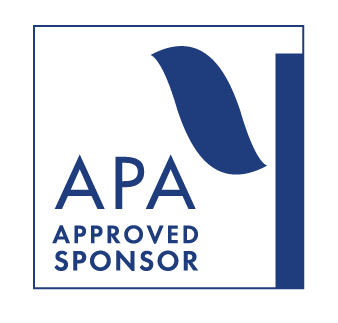
Producer: VPA/Brattleboro Retreat
During the past 50 years, a great deal has been learned about the etiology, epidemiology, typology, and phenomenology of addiciton that has uncovered its complex causes, natural history, and highly variable presentation and clinical course. These novel findings have given rise to a number of clinical paradigm shifts and increased awareness of the many pathways through and out of addiction and into remission and long-term recovery. These findings have helped reduce stigmatization of addiction but challenges still remain. This workshop will briefly review the new knowledge gained during the past 50 years and describe how this has led to shifts in cultural understanding of addiction and changes in drug policies, as well as a renewed focus on how to help individuals suffering from alcohol and other drug use disorders achieve stable remission and long-term recovery.
 The Vermont Psychological Association is approved by the American Psychological Association to sponsor live continuing education for psychologists. The Vermont Psychological Association maintains responsibility for its programs and their content.
The Vermont Psychological Association is approved by the American Psychological Association to sponsor live continuing education for psychologists. The Vermont Psychological Association maintains responsibility for its programs and their content.
Completion of this course earns 6 continuing education credits. Psychologists licensed in states whose licensing board approves continuing education offered by APA-approved sponsors may earn continuing education credits for this course.
Courses sponsored by the Vermont Psychological Association are pre-approved for continuing education for psychologists by the Vermont Board of Psychological Examiners. This course qualifies for 6 continuing education credits.
Continuing education courses sponsored by the Vermont Psychological Association are pre-approved by the Vermont Office of Professional Regulation for continuing education credit for licensed independent clinical social workers in Vermont. This course provides 6 CE credits for Vermont licensing.
This course has been approved for continuing education credit by the Vermont Board of Allied Mental Health and earns 6 continuing education credits.
The Vermont Psychological Association is approved by the American Psychological Association to offer continuing education for psychologists. These credits are also accepted by the New Hampshire Board of Mental Health Practice for clinical social workers licensed in New Hampshire, as provided in Mhp 402.02(b)(1). The course qualifies for 6 continuing education credits.
The Vermont Psychological Association is approved by the American Psychological Association to offer continuing education for psychologists. These credits are also accepted by the New Hampshire Board of Mental Health Practice for clinical mental health counselors licensed in New Hampshire, as provided in Mhp 402.02(b)(1). The course qualifies for mandated credit types as follows:
Ethics:
Suicide Prevention:
The Vermont Psychological Association is approved to offer continuing education to licensed clinical social workers by the Vermont Office of Professional Regulation, and is approved by the American Psychological Association to offer continuing education to psychologists. This course thus qualifies for 7.2 continuing education credits for Massachusetts licensed clinical social workers in Massachusetts under 258 C.M.R. §§ 31.04(2)(d), 31.04(5).
This course has been approved by the Massachusetts Mental Health Counselors Association for continuing education credit for licensed mental health counselors in Massachusetts. MaMHCA Approval # 22-0512
The Vermont Psychological Association is approved by the American Psychological Association as a continuing education sponsor for psychologists. Continuing education credit in the amount of 6 credits earned in this course may be accepted by the Connecticut Department of Public Health for licensed clinical social workers under Conn. Agencies Regs. § 20-195o(c)-3.
This course is pre-approved for credit for Connecticut licensed professional counselors under Conn. Agencies Regs § 20-195cc-3(a)(1). This course qualifies for 6 continuing education credits.
This course has been approved by the Vermont Office of Professional Regulation, CA-152769 , for 6 continuing education credits for licensed alcohol and drug abuse counselors in Vermont.
The Vermont Psychological Association is recognized by the New York State Education Department’s State Board for Psychology as an approved provider of continuing education for licensed psychologists #PSY-0210. This course qualifies for 6 continuing education contact hours.
| Research References (222.7 KB) | 1 Pages | Available after Purchase |
| Speaker Slides (19.5 MB) | 179 Pages | Available after Purchase |

Dr. John F. Kelly is the Elizabeth R. Spallin Professor of Psychiatry in Addiction Medicine at Harvard Medical School. He is also the founder and director of the Recovery Research Institute at the Massachusetts General Hospital, the associate director of the Center for Addiction Medicine, and the program director of the Addiction Recovery Management Service. Dr. Kelly has published over 200 peer-reviewed articles in the field of addiction medicine and was an author on the U.S. Surgeon General's Report on Alcohol, Drugs, and Health. His work has focused on addiction treatment and recovery, mechanisms of behavior change, and reducing stigma.
Name two dimensions that underlie stigma related to addiction.
Name 3 strategies that are helpful to address addiction stigma.
Describe the nature and potential impacts of differing drug policies.
Delineate two factors that inhibit successful recovery from addiction.
Describe the evidence base for treatment and recovery support services in addressing addiction.